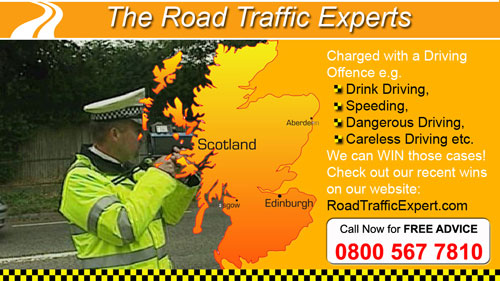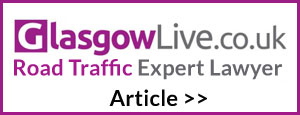GlasgowLive Article
Some of the most common misconceptions held by drivers
Road traffic law expert Richard Freeman reveals three more pearls of wisdom which correct some of the most popular motoring myths.

The fully-comp insurance trap
Many motorists think they are covered by insurance when they’re not. They have driven another person’s car, genuinely but mistakenly believing that their own comprehensive insurance certificate will cover them. Sadly, this is no longer the case.
In the past a comprehensive insurance policy would also cover the policyholder for driving another vehicle not belonging to them, on a third-party basis. However, many insurance companies have withdrawn this cover. Most policy holders appear to be unaware of these changes when it comes to renewal.
They believe the same cover they had a year ago is still in place, when it is not. It is important to check the policy conditions carefully to ensure you have the cover you think you have.
No need to open the bonnet.
The police are entitled to stop a motorist for a vehicle check. When that happens you might find that they invite you to open the bonnet.
The police do not always have a right to require you to open the bonnet, especially if it constitutes a fishing search.
However, If they do inspect the engine compartment and notice that the battery is slightly loose they can charge you with that, as it is an offence not to have a secure battery. You may have a defence to that charge but it involves battling it out in court. It would be better to tell police that you don’t want to open the bonnet.
Driving then drinking at home
Many people contact us after they have been charged with drink driving in circumstances where they have been home for an hour or so before the police turn up.
They think they cannot be charged with drink driving because no one has actually seen them drinking before they drive.
The police, however, do not need to prove that the suspect has taken alcohol before driving.
The law creates a presumption that the amount of alcohol consumed at the time of driving is no less than the amount of alcohol in your breath at the time it was analysed by the Intoximeter machine when taken back to the police station.
This presumption can only be rebutted by the accused if they can prove to the court that at the time of driving he or she would have been below the drink driving limit. This is not a straightforward defence and a solicitor should be engaged to assist with it.
We Cover All of Scotland
 All of Scotland Covered:
All of Scotland Covered:
Including: Glasgow Edinburgh Aberdeen Dundee Dumfries Paisley East Kilbride Perth Livingston Giffnock Cumbernauld Hamilton Kirkcaldy Dunfermline Ayr Kinross Kilmarnock Inverness Greenock Inverclyde Port Glasgow Coatbridge North Lanarkshire Glenrothes Fife Airdrie Falkirk Stirling Rutherglen Dumfries Galloway Motherwell Wishaw Clydebank West Dunbartonshire Bearsden East Dunbartonshire Cambuslang Newton Mearns East Renfrewshire Bishopbriggs Musselburgh East Lothian Arbroath Angus Polmont Elgin Renfrew Renfrewshire Alloa Bellshill Clackmannanshire Blantyre Dumbarton West Dunbartonshire Kirkintilloch Clarkston
East Renfrewshire Bathgate West Lothian Stenhousemuir Falkirk Peterhead Aberdeenshire Barrhead
Grangemouth Falkirk St Andrews Kilwinning Ayrshire Viewpark Buckhaven Penicuik Midlothian Stranraer Johnstone Erskine Larkhall Moray



